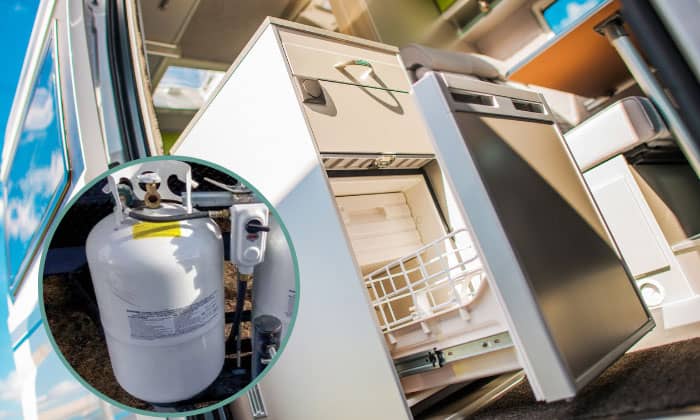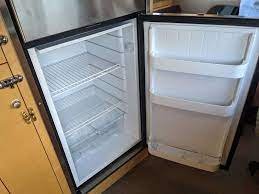When you’re planning a road trip in your RV, managing resources efficiently can make a big difference in your overall experience. One of the key appliances in your RV that will require continuous power is the refrigerator. It’s vital for keeping your food fresh and your drinks cold. While many modern RV refrigerators can run on electricity, there are still times when you might rely on propane, especially if you’re camping off the grid. Understanding how much propane your RV refrigerator uses can help you plan better and ensure you’re never out of fuel when you need it most.
RV refrigerators are typically absorption refrigerators, which means they can run on electricity (either AC or DC) or propane gas. This versatility allows RV owners to switch between power sources based on availability and need. When connected to an external power source or running on a generator, the refrigerator can operate on electricity. However, in remote locations where electricity is not available, propane is a reliable alternative.
While electric power is often the preferred option when available due to its convenience, propane is incredibly efficient in terms of energy use and cost, particularly when boondocking or during travel. Propane refrigerators are highly efficient, using the heat generated by burning the propane to drive the cooling process with minimal moving parts, thus reducing the risk of mechanical failures.
The amount of propane used by an RV refrigerator depends on several factors including the size of the refrigerator, ambient temperature, and the efficiency of the unit. However, a general estimate is that a standard RV refrigerator will consume between 1,200 and 1,500 BTUs per hour when running on propane.

To better understand how this translates into actual propane usage:
One of the advantages of using propane for your RV refrigerator is cost-effectiveness. Propane prices vary by location, but it generally remains an affordable option for many travelers. For example, if propane costs $3 per gallon, running your refrigerator would cost around $4.44 per day (1.48 gallons x $3), or about $133.2 per month.
To optimize propane usage and ensure your RV refrigerator runs efficiently, consider the following tips:
By understanding how much propane your RV refrigerator uses, you can better manage your resources on the road, ensuring a smooth and enjoyable trip. Remember, the key is not just in knowing the figures but in optimizing usage to extend your fuel supply without compromising on comfort. At TheKitchenApplianceDad.com, we aim to provide you with practical tips and detailed insights to make your RV adventures as comfortable and efficient as possible. Whether you’re a weekend warrior or a full-time traveler, knowing how to manage your RV’s resources can lead to a more enjoyable and stress-free experience.

